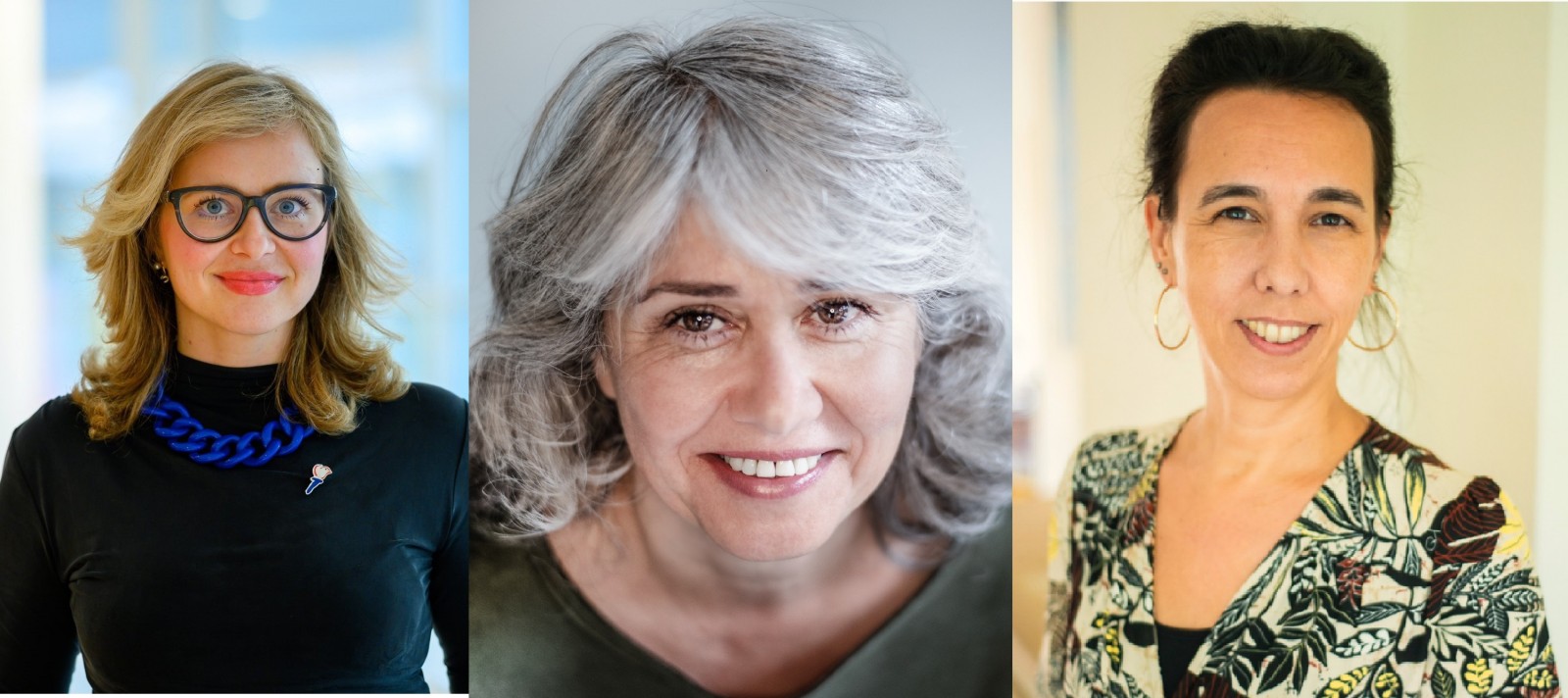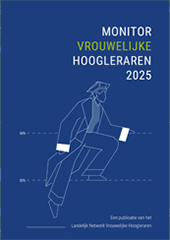Annual LNVH Affiliates' Meeting 2021 - An impression
On October 11th the Annual LNVH Affiliates’ Meeting took place in the Railway Museum in Utrecht. Central theme of this Affiliates’ Meeting was ‘the road traveled, current challenges and future perspectives’.
Hanneke Takkenberg, chair of the LNVH board, kicked-off the meeting with an introductory talk about the achievements of the LNVH in the past 20 years. She also highlighted the goals for the next 20 years. Takkenberg elaborated on the fact that the LNVH has become a critical ally of universities and of policy makers within Dutch academia. ‘We push their agendas, and we help them make our universities better universities. We do not do that ourselves; we just push them in the right direction. That’s the role that we have, because in the end it is the system that has to change itself for the better.’
Takkenberg stated that she is happy that there is so much more attention for diversity and inclusion in general. It helps us to push our agenda, but we also run into some of the challenges that come along with having a broader view on diversity. Every now and then Takkenberg hears leadership and policy makers even say “The women are doing quite well. I think we are going to focus on another type of diversity now”. This is worrying, because there is still plenty to do when it comes to gender equality. Takkenberg stressed it is important that we make clear that LNVH is there for all women in science, regardless their backgrounds and where they are from. ‘That is going to be our focus over the next period of time. We will collaborate with other stakeholders in the diversity field. So that we can join forces, not compete with each other, but reinforce and amplify each other.' You can watch the full Introduction via this link.
The central theme ‘the road traveled, current challenges and future perspectives’ is also central to the work and life of the speakers we invited. We were delighted to welcome professor in the Interdisciplinary study of societal challenges at Leiden University, dean of Leiden University College and this year's laureate of the NWO Stevin Prize, prof. dr. Judi Mesman. Mesman conducts research into the role of gender, cultural and socio-economic factors of parents and children in shaping parent-child interactions and developmental pathways
Leila Prnjavorac, moderator of the meeting, talked with Judi Mesman about winning the NOW Stevin Prize and her research plans. Mesman explained she will be ‘zooming out’ a little bit, looking beyond the family and school context when it comes to issues of diversity and inclusion and to look at the way that future professionals who will work with children and families are being taught about child development, about parenting, about education. ‘I’m expecting there to be quite a lot hidden in de curriculum about norms and values that nobody explicitly talks about, but are there and they have something to say about what is appropriated, about what is “normal”, who is normal, etc.’
In her research Mesman talks about “othering”, an often very implicit process, about treating somebody in a way that they are made to feel like they don’t belong to the majority or dominant group at that time. ‘That could be by posture, by your tone, by whether you look somebody in the eye or not. It could be by all sorts of words that you use in conversation. And these are very subtle cues that make the other either feel, or sometimes they are explicitly told, like they are not included, that they are not part of the club.’
Mesman also talked about her book, Opgroeien in kleur, that will be published in November. It is a book for parents who are interested in thinking a bit more about how they can teach their children, how they can raise their children in an anti-racist way. ‘So how to talk about color, how to talk about difference, how to talk about race and ethnicity which most parents find very difficult to do.’
Responding to the question ‘What do you see as an important development in academia?’ Mesman answered: ‘I think the broader attention to diversity and inclusion, more generally in academia is really important. That goes together a little bit with what I am planning in my research. I know people get nervous when you mention the term decolonization. But if you really only see it as thinking critically about who is teaching what about whom and towards what goals that can only be good for academic research and teaching. To reflect a little bit more explicitly on what we are presenting to our students and what we are presenting to future researchers as knowledge, as valid knowledge, as facts. I don’t think it is a scary process, I think it is a really exciting process. Because I think it will open up doors to stories and knowledge that have been hidden and have been in the background for a long time.’
Recognition and Rewards is part of the same storyline according to Mesman: it is looking at what we do and why we do it and what we value from a different perspective, to be a little bit more critical about what we have been taking for granted, in how we consider quality and who and what is good. ‘I think Recognition and Rewards does exactly that.’
You can watch the conversation with Judi Mesman via this link.
We were also very pleased to welcome Mardjan Seighali, chair of the Humanistisch Verbond, member of the advisory board of the Netherlands Institute for Human Rights and director of the foundation for refugee students UAF. The UAF provides support to refugee students and professionals. In smart and effective ways, they offer refugees opportunities to further develop themselves in the field of study and work. She is also the author of the book 'Tot op de dag', published in 2021. Leila Prnjavorac talked with Seighali about her inspiring journey and everything she has achieved in her impressive career and with her impactful work for UAF.
Mardjan spoke about how she had to start over several times in her life and how that ultimately made her stronger. But, she told the audience, you can’t do it all by yourself. You need an environment that gives you opportunities. ‘For example, I was allowed to study with the support of the UAF. And studying gives you insights, so you can become the director of your own life (again). Reshaping your life does not happen by itself, but you are gradually laying new foundations for yourself and for the generation after you.’
Speaking of inclusivity, Seighali said, ‘It's not 5 to, but 5 past 12.’ She said she definitely sees progress as there are a lot of people talking about inclusivity. But it's very patchy and there's too much incidental intervention, while inclusiveness should concern all of us. According to Seighali, education, from primary to higher education, must lay the foundation for an inclusive society. ‘I sometimes hear people say things like “there is no exclusion or institutional racism”. And then I think: it shouldn't be a political issue. Our society ís diverse. How can you create a diverse and inclusive society in which color and origin are not seen as a threat?'.
According to Seighali, people often say: you have to see similarities, but her message is that we should certainly recognize and acknowledge similarities, but also cherish the difference. Differences create new insights and science and the world benefit from differences in insights in order to take the next step, to be enriched. ‘So in that regard, as far as I'm concerned, not enough can be done on diversity and inclusion.’
You can watch the conversation with Mardjan Seighali via this link.
Between these interesting talks participants had plenty of opportunity to catch up and network during drinks and dinner. Courses where served between and after the interviews on a unique location in the Railway Museum: the Oriënt Express platform. Jazz combo Peptalk provided a cheerful musical setting for the evening.
It was a truly inspiring event and we are very happy that we were able to meet each other in person again - although still with the limited number of only 75 participants, due to COVID-19 restrictions.

From left to right: Leila Prnjavorac, Mardjan Seighali, Judi Mesman.


